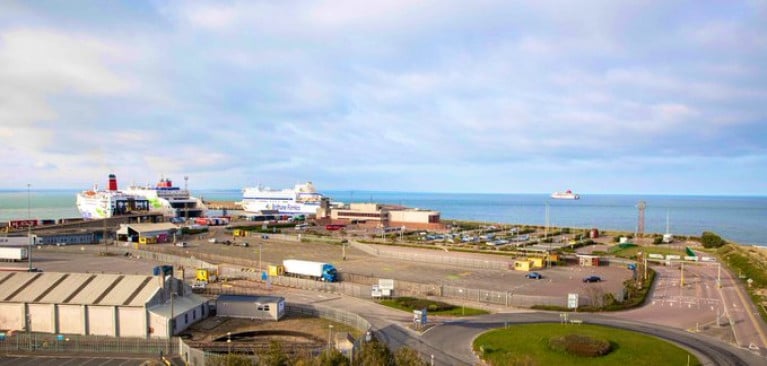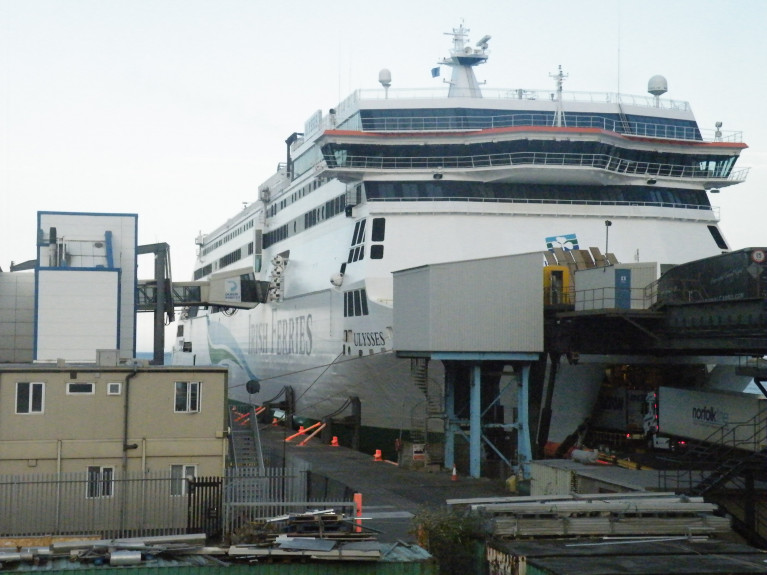Displaying items by tag: Quarantine
Rosslare Europort Quarantine Measures Begin at Ferryport
At the ferryport of Rosslare Europort and tucked away at the rear of the terminal building are two large green tents, flanked by several defence forces SUVs, reports New Ross Standard.
The newly erected 'holding area' is evidence of the new quarantine system which came into play at all entrance points to Ireland on Friday - including the Wexford port.
Under the new rules, anyone arriving into Ireland from a list of 33 'high-risk' countries will be legally required to undertake a mandatory two-week quarantine at one of four Dublin hotels costing a minimum of €1,875. While it was reported that the old Hotel Rosslare had been looked at as a possible quarantine facility, this has not come to pass and anyone arriving at Rosslare who is required to quarantine will be brought to the capital.
Although Rosslare is unlikely to see too many people who have passed through the 33 countries, most of which are in South America and Africa, new rules also state that passengers arriving into the country without a negative PCR test taken a maximum of 72 hours before arrival, will be forced to wait in mandatory quarantine until they return a negative test.
This means that any passengers arriving in Rosslare, excluding truck drivers and crew, from France, Spain or the UK will be legally required to present a negative Covid test. If they don't, they'll be brought to the 'holding area' tents at the rear of the terminal building, where they will be tested before the defence forces bus them out to a mandatory quarantine facility in Dublin where they will pay at least €150 per day until a clear test is returned.
Further reading on the story here.
Passengers coming from Britain to the Republic and subjected to a two-week quarantine, at a time when Boris Johnson’s government has exempted Irish citizens from its own restrictions, puts the entire Common Travel Area at risk post-Brexit, according to the head of ferry operator Irish Continental Group (ICG).
ICG, owner of Irish Ferries, has seen passenger numbers slump 60 per cent so far this year amid Covid-19 travel restrictions, it said in a trading statement on Thursday.
As The Irish Times writes, the company has written to the Government arguing that a requirement that people travelling to the State should self-isolate for 14 days is not consistent in the Common Travel Area (CTA) with the UK government’s position that no such measures be taken by passengers travelling from the Republic to Britain.
“There is nothing to stop people from Britain visiting Ireland by transiting via Northern Ireland without the requirement to self-isolate, which is clearly anomalous,” ICG said.
Speaking to The Irish Times, ICG chief executive Eamonn Rothwell said: “The CTA is going to be very important to Ireland post-Brexit. We don’t want to risk the British people turning around and saying, ‘Hold on a sec, we’re letting Irish people travel to Britain but you’re forcing British people to go via Northern Ireland.’ There’s a risk that they’ll retaliate.”
The Government’s quarantine rules for travellers came into effect on May 28th and are due initially to last until June 18th.
For more click here noting the reference to ICG's decision to cancel an order for a new Dublin-Holyhead ferry with a shipbuilder, after the German shipyard company filed for protection from its creditors in April.































































